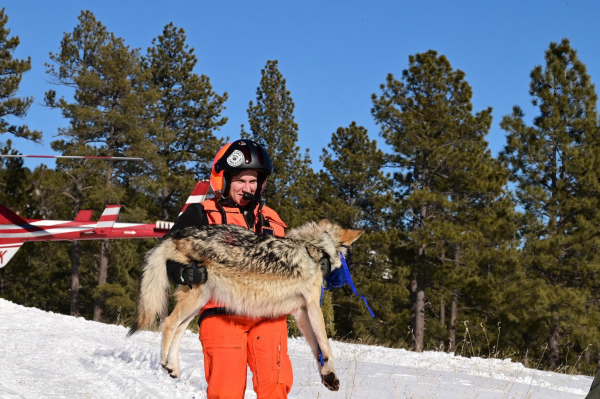HSUS Sues to Overturn Wolf Delisting
On Tuesday, February 12th, the Humane Society of the United States (HSUS) and other animal rights organizations filed a lawsuit against the U.S. Fish and Wildlife Service to overturn the removal of the Western Great Lakes region wolves from listing under the Endangered Species Act (ESA). The lawsuit was filed in the U.S. District Court in Washington D.C.
Wolves in the Western Great Lakes region, which consists of Wisconsin, Minnesota, Michigan, and parts of bordering states, were removed from ESA protection in January of 2012 after exceeding population recovery goals. This allowed state wildlife professionals to manage exploding wolf populations that have become a danger to livestock, pets, and wildlife populations.
If successful, the lawsuit would unnecessarily return wolves in the region to federal protection under the ESA, a move that would again prohibit state wildlife agencies from managing them.
“This lawsuit undermines both the ESA and the North American Model of Wildlife Conservation,” said Jeremy Rine, U.S. Sportsmen’s Alliance In-House Counsel. “Wolves in this region have far exceeded the population recovery goals established and should be managed by the individual state wildlife agencies to ensure sustainable populations and public safety. This is just another example of the animal rights lobby trying to abuse the ESA which was never intended to permanently protect species that have recovered.”
Joining HSUS in filing the lawsuit are Born Free USA, Help Our Wolves Live, and Friends of Animals and Their Environment.
USSAF and Wolves:
The U.S. Sportsmen’s Alliance Foundation (USSAF) and its partners have been on the front lines working to ensure that wolves in the Western Great Lakes region were removed from the ESA and rightfully returned to state management. In 2010, USSAF helped initiate the delisting by threatening to sue the Service if it did not start the delisting process. USSAF also represented sportsmen in lawsuits by HSUS to overturn previous delisting attempts. Those cases were decided on legal technicalities that were not based on whether or not wolves were recovered. Additionally, USSAF represented sportsmen in a lawsuit in Wisconsin challenging portions of the state’s wolf hunting season.





